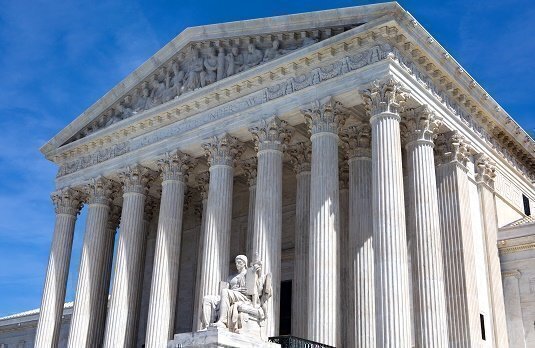A divided Supreme Court ruled on Monday, more clearly than it had done before, that a city government may sue home loan companies for racial discrimination against minority buyers. However, it put a new, strict limit on that right, saying that a city must offer direct proof that the local government itself had actually been harmed as a result.
 It is not enough, the court said, for a city to claim that harmful effects on the city seemed likely to follow. If it can’t show that the biased practices were the cause for the city’s increased budgets or reduced revenues, the city’s claim fails, according to the decision.
It is not enough, the court said, for a city to claim that harmful effects on the city seemed likely to follow. If it can’t show that the biased practices were the cause for the city’s increased budgets or reduced revenues, the city’s claim fails, according to the decision.
The 5-to-3 ruling in a pair of closely-watched cases filed by the city of Miami, Fla., rejected the argument made by the Bank of America and Wells Fargo that Congress did not intend to give city governments the right to sue to enforce the federal Fair Housing Act. Congress, the court said, meant to open the federal courthouse to those claiming harms from biased lending or sales practices as wide as the Constitution would allow.
In the majority opinion, written by Justice Stephen G. Breyer, the court said prior rulings it had issued recognized that cities could be harmed by discriminatory housing practices, and it said it was following those precedents, especially since Congress was aware of them when it passed a new version of the housing law in 1988. The new decision appeared to solidify those precedents.
What appeared to be most significant about the decision was the court’s insistence on a tough test that city governments’ lawsuits would have to satisfy. It said a federal appeals court had been wrong in ruling that a string of consequences flowing from biased home financing practices would “foreseeably” hurt the city, as well as the victims of the bias.
In the lawsuits by Miami, the city cited a string of impacts from such discrimination: giving minority customers less favorable mortgage terms would lead to defaults, which would lead to foreclosures, which would lead to vacant houses in minority neighborhoods, which would lead to lower property values causing an impact on city tax revenues and to increased crime in the “blighted” areas of the city.
A federal appeals court had accepted that chain of consequences as sufficient to show that the Miami government was a victim of the lenders’ practices.
The Supreme Court said that was not a sufficiently demanding test of cause-and-effect. It conceded that a violation of the housing act “may be expected to cause ripples of harm to flow,” but it said there was nothing in the law to suggest that Congress “intended to provide a remedy wherever those ripples travel.”
What the law requires, the majority said, was “some direct relation between the injury asserted and the injurious conduct alleged” – in technical legal terms, “proximate cause.” The harm claimed, it added, cannot be only remotely linked to the illegal mortgage practices.
The court chose not to make a final decision on whether Miami had satisfied this newly established test. The appeals court should be first to do that, it said.
The Breyer opinion was supported by Chief Justice John G. Roberts, Jr., and by Justices Ruth Bader Ginsburg, Elena Kagan and Sonia Sotomayor.
Justice Clarence Thomas wrote the dissenting opinion, joined by Justices Samuel A. Alito, Jr., and Anthony M. Kennedy. The dissenters argued that Congress did not intent that cities could sue over violations of the housing law.
The new Justice, Neil M. Gorsuch, did not take part in the ruling because the cases arose before he joined the bench last month.
Legendary journalist Lyle Denniston is Constitution Daily’s Supreme Court correspondent. Denniston has written for us as a contributor since June 2011 and has covered the Supreme Court since 1958. His work also appears on lyldenlawnews.com.







